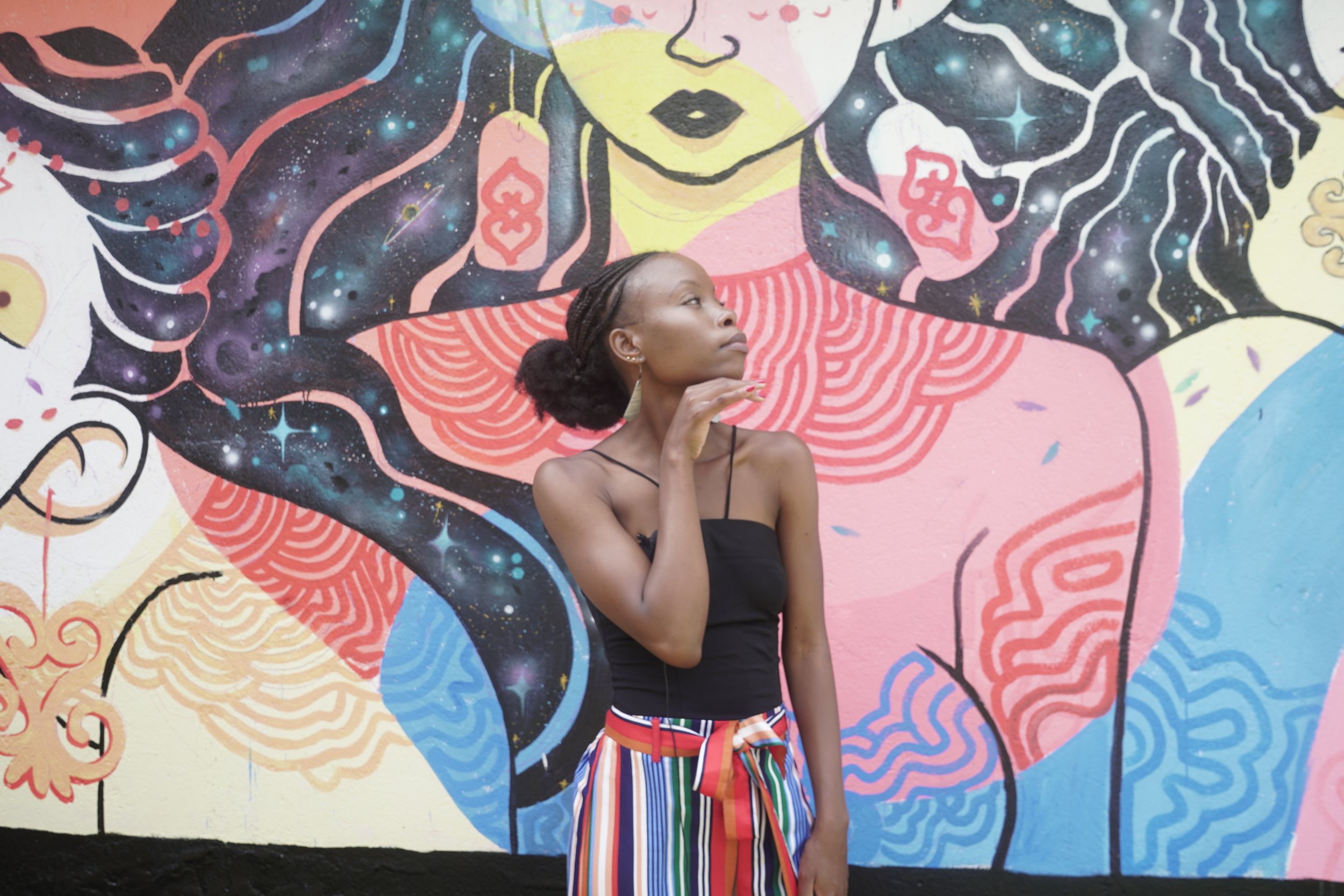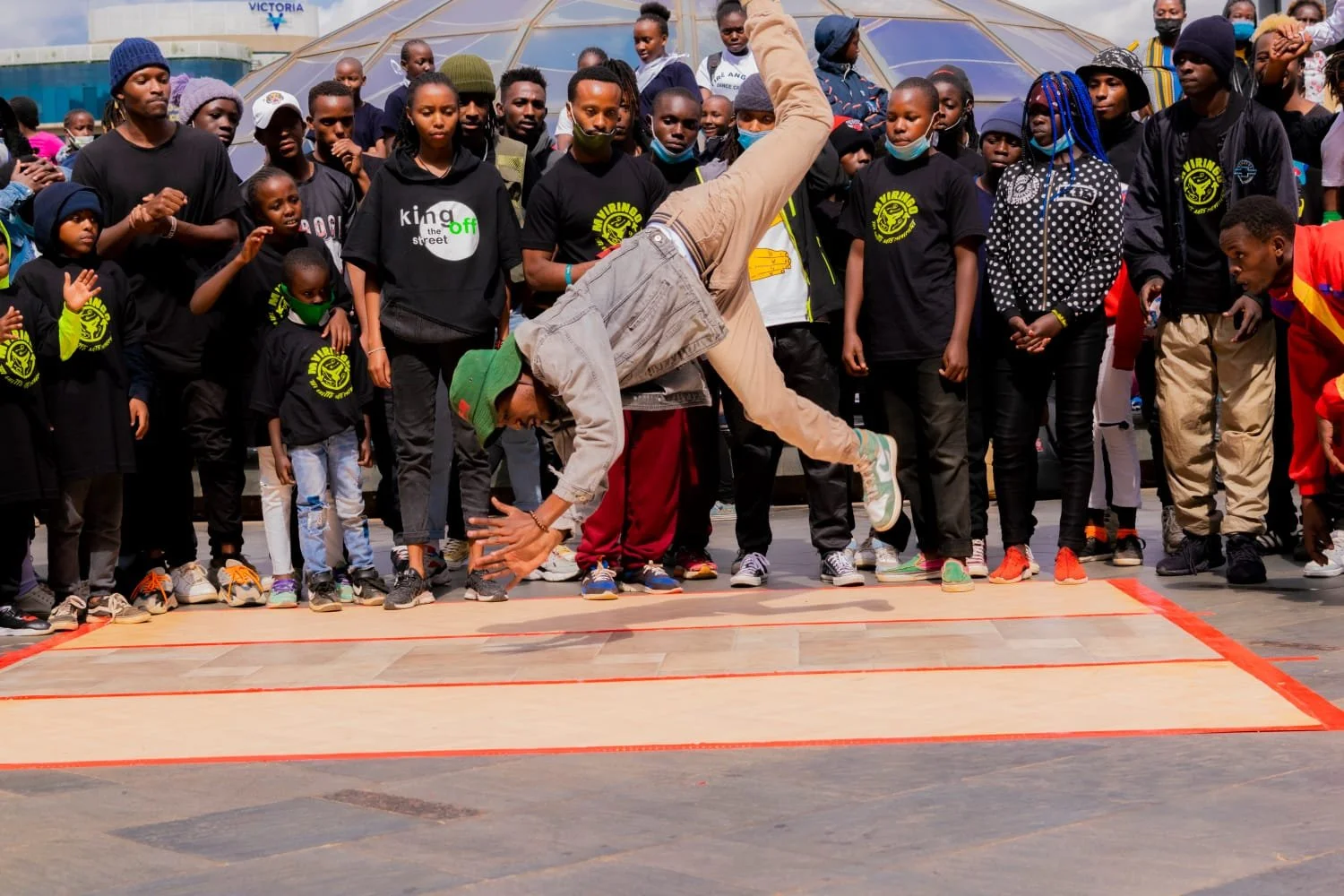Santuri Alumni Open Up About Their Experiences With The Organization's SEMA Programme
If you're a Nairobi music enthusiast, then you know more than most that the scene is diverse and bursting with talent. Artists across genres both up-and-coming and established capture the essence of what younger Kenyan generations are all about: hustling hard and enjoying life. Though it's an exciting time for the scene, the industry in Kenya is not without its shortcomings. There are major discrepancies between the music industry, government entities in charge of distributing profits, and artists.. Moreover, clear-cut pathways necessary to succeed in this industry are presumably nonexistent.
Enter Santuri East Africa — a non profit arts organisation that supports East African music producers, DJs, sound engineers among other music industry professionals primarily in the electronica genre. Santuri works towards bridging the gap between artists and the industry by empowering artists to further their careers and build connections with other industry folks. They created the Santuri Electronic Music Academy (SEMA), with support from the Goethe-Institut, a programme that teaches up-and-coming artists several skills to help further their career.
“SEMA grew out of various interactions we had been having in the region for the last 8 years,” David Tinning, Santuri Co-Founder, explains. “We have initiated countless workshops in music production, but always in makeshift spaces and over short timeframes.” Tinning says the team “always imagined what a dedicated educational space for electronic and alternative music culture would look like. SEMA is our giant step into formalising everything good about those early workshops, adding new and exciting elements, and creating courses that engage artists over a much longer period.”
The Santuri Team talked to over 250 artists, and a further 30 collectives, organisations and labels / studios to gauge what the industry was lacking. “It was very clear that some of the key elements people felt were missing was access to creative spaces, access to the tools of the trade (software, hardware) in comparison tothe opportunities music makers around the world have,” Tinning shares. “On top of that, it was very clear that the region's music industry is not an easy place for women. We received a lot of testimonies from women struggling to find supportive spaces or non-threatening environments to develop their skills or showcase their work. We took all this on board when developing SEMA.”
Through SEMA, the Santuri Team has helped tons of artists early in their career fine tune their skills and push their career forward. Read on for some of their alumni’s stories.
Labdi
“Being a woman in a male-dominated field is quite intense,” Labdi Live shares. She plays the orutu, a single string fiddle from Western Kenya – player Labdi Live shares. “I felt unsupported by my peers prior to joining SEMA.” Labdi’s desire to “know more about the music industry” led her to SEMA. “I wanted to be self-sufficient,” she explains to me via email.
Labdi learned a lot during her time in the program, but the technical skills she took away after completing SEMA were particularly influential to her career. “ SEMA taught me how to be a critical thinker, and the value of seeking out technical information,” she explains. “For example, what the best plugins are. I also learnt to diversify the software I use.”
Now, Labdi has the knowledge she needs to stand on her own two feet. “I now am a self-sufficient musician with the ability to produce and compose my own music,” she says with pride. “SEMA has given me the freedom to do whatever I want and in my own time in a safe, supportive space. That’s helped me grow as an artist.” Labdi also notes that collaborating with other artists is much easier since her involvement in the SEMA program.
“Programs like SEMA are crucial to the music community in Nairobi,” she says. “They bridge the gap between the number of women and men in the industry, which influences the wage gap among the sexes,” she says. “SEMA is also pro- Queer people which is great because people who identify as part of the LGBTQIA+ community need safe spaces to exist and create.”
Keep up with Labdi on Instagram @labdiofficial.
El Mbuyu
El Mbuyu is a music producer, artist, and co-founder of MajorBeatAlert Productions (M.B.A). “My music can be categorised as Afro-hop, HipHop, Alternative Music, Shrap-Soul & a new sound I've created known as AfNairo.”
“I joined SEMA because I believed the program would enhance my musical knowledge & skills,” he explains. “I thought the program would be an important stepping stone in my musical journey of manifesting my purpose from a dream into reality.” Prior to joining SEMA, El Mbuyu struggled with the same challenges as many artists early in their career. “I didn’t know much about mixing and mastering music, and that really held me back,” he explained.
El Mbuyu really responded to the environment SEMA fostered. “I loved the energy that came with the tutors, staff & students, creativity was always in the air,” he says. “The mixing mastering & music distribution classes were the most helpful for me. They immensely impacted the way I now move in my career.”
“My main challenge is finding passionate, like minded people with a long term vision in this field,” El Mbuyu says of the challenges he’s faced in his career. “I’m constantly coming across people trying to take advantage of my craft, and that makes success difficult. Thankfully, SEMA gave El Mbuyu the community of like-minded artists he was looking for.
Now, El Mbuyu is working on developing his “AfNairo sound even further, exercising my mixing & mastering skills with proper knowledge in the field.”
Keep up with him on Instagram @el_mbuyu.
Mercy Barno
Barno has been a musician since she was 8-years-old. Now, she adds audio engineer, music producer, and budding DJ to the list. “My music is within the electronica and ambiance realms,” she tells me via Zoom.
Barno’s artistry is inspired by elements in her day-to-day life. She finds music in the mundane, and that’s what sets her sound apart. “If I’m in town, maybe I’ll hear a certain note or melody coming from a matatu, or outside a shop,” she explains. “It’ll run through my head and I’ll use it in some capacity on a track.” Barno’s inspiration goes beyond melodic sounds. She’s inspired by other works of art as well. “A certain part in a book could inspire me,” she shares. “Sometimes even a podcast episode is as odd as it sounds.”
She came upon SEMA on social media. She figured getting in would be a longshot, but she went for it anyway. To her surprise, she made the cut. And the program proved to be vital to her growth as an artist.
“I learned a lot of things I didn’t know,” she said. “I learned how to take my music to the next level, and what I was really capable of doing.” She notes that the technical classes, during which she learned how to use music softwares like Ableton, were her favourite. “It set the foundation for me to really get to know these programs,” she says. “And I’m still learning today.”
Barno’s currently working on a “collaborative” EP, which she hopes will drop in the near future.
Follow her on Instagram at @merc.b_ andTwitter at @barno_j.
Barno, El Mbuyu and Labdi Live are just three examples of the impact Santuri has had on up-and-coming talent in Nairobi. The organisation turned academy has empowered hundreds of talents with the knowledge and confidence needed to pursue a career in music.
Santuri has recently concluded an advanced course with a successful showcase. They’re about to begin their beginners course, and look forward to bringing new talent into the fold.
All photographs were taken by Coco Em (@cocoem___).






